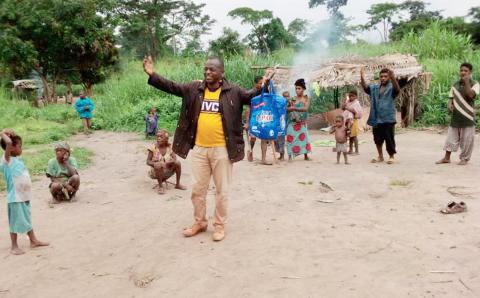The Council of Delegates of the Christian Reformed Church approved a denominational ministries budget based on ministry share pledges of $18.4 million, approximately 15% less in the U.S. and 5% less in Canada compared to last year’s income. (The Council acts in the interim of synod, the CRC’s broadest assembly. It met by video conference May 5-7.)
While the total income is less, CRC director of finance and operations John Bolt said more churches participated in the pledging system. In the past, only established churches, not emerging or newly planted ones, were invited to make contributions.
Ministry shares are the money sent by local churches who convenant together to support shared denominational ministries. The ministry share system has been called both the jewel of denominational fundraising and the wild card of budgeting. The cost of raising money through ministry shares is negligible, taking about 20 cents for every $100 raised. Raising that money via advancement activities can take $20 for every $100 raised.
However, as Bolt told delegates at a 2019 Council meeting, creating a budget of millions based on hoped-for receipts means operating “on a wish and a prayer.” Indeed, in recent times the amounts received fell far short of what was asked. Last year, churches were asked for $346.48 per adult professing member. Only 58% of that was received.
So Synod 2019 turned the system on its head. Now churches are asked to pledge how much they will contribute, and the budget is based on that amount. The budget for 2021-22 is based on the $18.4 million pledged.
The traditional allocation of funds between agencies has also been adjusted. For the coming fiscal year, the biggest percentage changes are at Resonate Global Mission and Congregational Services. Resonate’s share of the pie is now 26%, down from 31%, while Congregational Services’ share is now 29%, up from 23%.
The Congregational Services office, which houses many smaller ministries including Chaplaincy, Faith Formation, Indigenous Ministries, Pastor Church Resources, Safe Church, Social Justice, Race Relations, and Worship, gets nearly 70% of its budget from ministry shares.
The rest of the denominational agencies (Calvin University, Calvin Theological Seminary, ReFrame Ministries, and Synodical Administrative Services) saw their portions of ministry shares go up or down by less than 2%. World Renew, the denomination’s international relief agency, has never received ministry shares. Its support comes from church offerings and individual donations.
Bolt has convened an administrative team to conduct a strategic financial review of the agencies. Among its goals are to compare each ministry’s working mandate to the original mandate given by synod; to discover where there is duplication of service; to determine which ministries are difficult or impossible for a congregation to do on its own; and to look at historical budget and staffing levels. The team expects to present a final report to the Council of Delegates in October 2021.
About the Author
Gayla Postma retired as news editor for The Banner in 2020.









